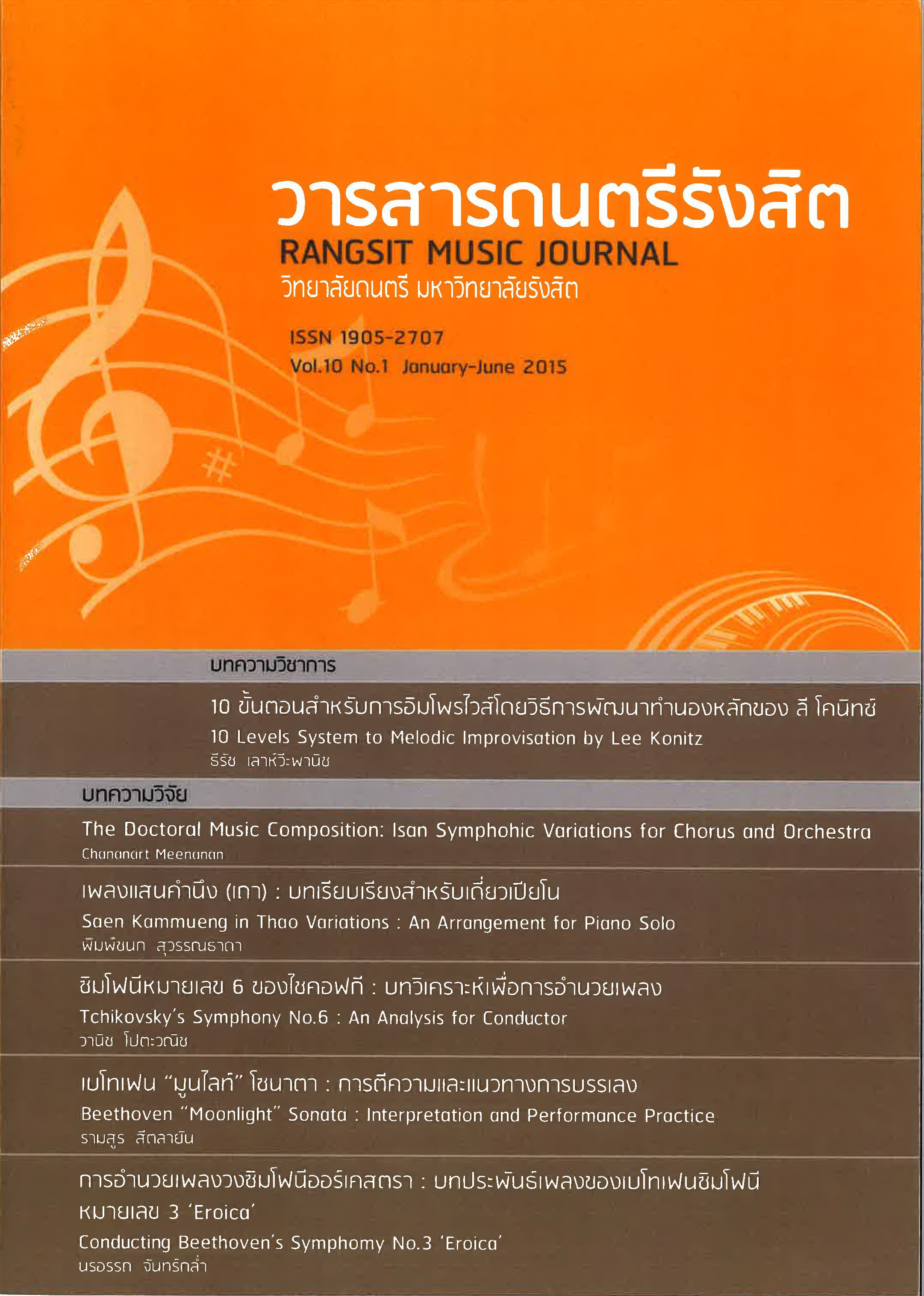Tchaikovsky's Symphony No. 6: An Analysis for Conductor
Abstract
The most significant step conductors have to take before conducting is to acquire a deep understanding in all aspects of the composition. Analysis is needed for knowledge of the compositional process and thoughts the composers imbedded in their works. This is the source of an accurate interpretation of what message composers want the audience to perceive and a vital step before beginning rehearsals. In this research, Tchaikovsky's Symphony No. 6, one of the most sophisticated and comprehensive compositions, is analyzed. Its melodic structure reveals the connection of the 3 main ideas Tchaikovsky employed through his diverse melodic development techniques. Consequently, this makes the symphony a noteworthy and a unified, delicate composition that leads the conductor thru its artistic and invaluable beauty. Likewise, the actual message can be fully conveyed to musicians and audience to pursue the meaning of this treasured composition.
References
2. ณัชชา โสคติยานุรักษ์. สังคีตลักษณ์และการวิเคราะห์. กรุงเทพฯ: สำนักพิมพ์จุฬาลงกรณ์มหาวิทยาลัย, 2544.
3. วรพจน์ เชื้อสำราญ. "การวิเคราะห์เชิงเปรียบเทียบด้านระบบโครมาติกในท่อนแรกของบทเพลงซิมโฟนี หมายเลข 90 ประพันธ์โดยฟรานซ์ โยเซฟ ไฮเดิน และบทเพลงซิมโฟนีหมายเลข 41 ประพันธ์โดย โวล์ฟกัง อะมาเดอุส โมสารท์." วารสารดนตรรีงัสติ 8, 2 (มิถุนายน-ธันวาคม 2556): 63-71.
4. Abraham, Gerald, The Music of Tchaikovsky. New York: W.W. Norton, 1946.
5. Blom, Eric. Tchaikovsky Orchestral Works. London: Oxford Press, 1927.
6. Heger, Theodore E., and Earl V Moore. The Symphony and the Symphonic Poem. Ann Arbor, MI: Edwards Brothers, 1974.
7. Kishimoto, Masashi. "An Analysis of Igor Stavinsky's Symphony of Psalms Focusing on Neoclassic." Rangsit Music Journal 8, 1 (January-June 2013): 6-17.
8. Randel, Don Michael. The New Harvard Dictionary of Music. London: Harvard University Press, 1999.







